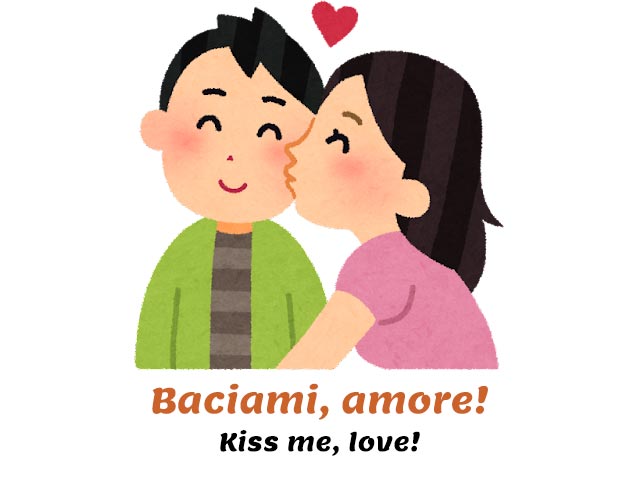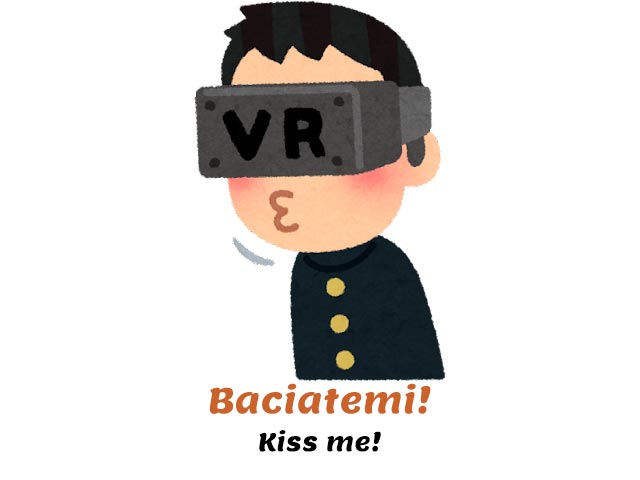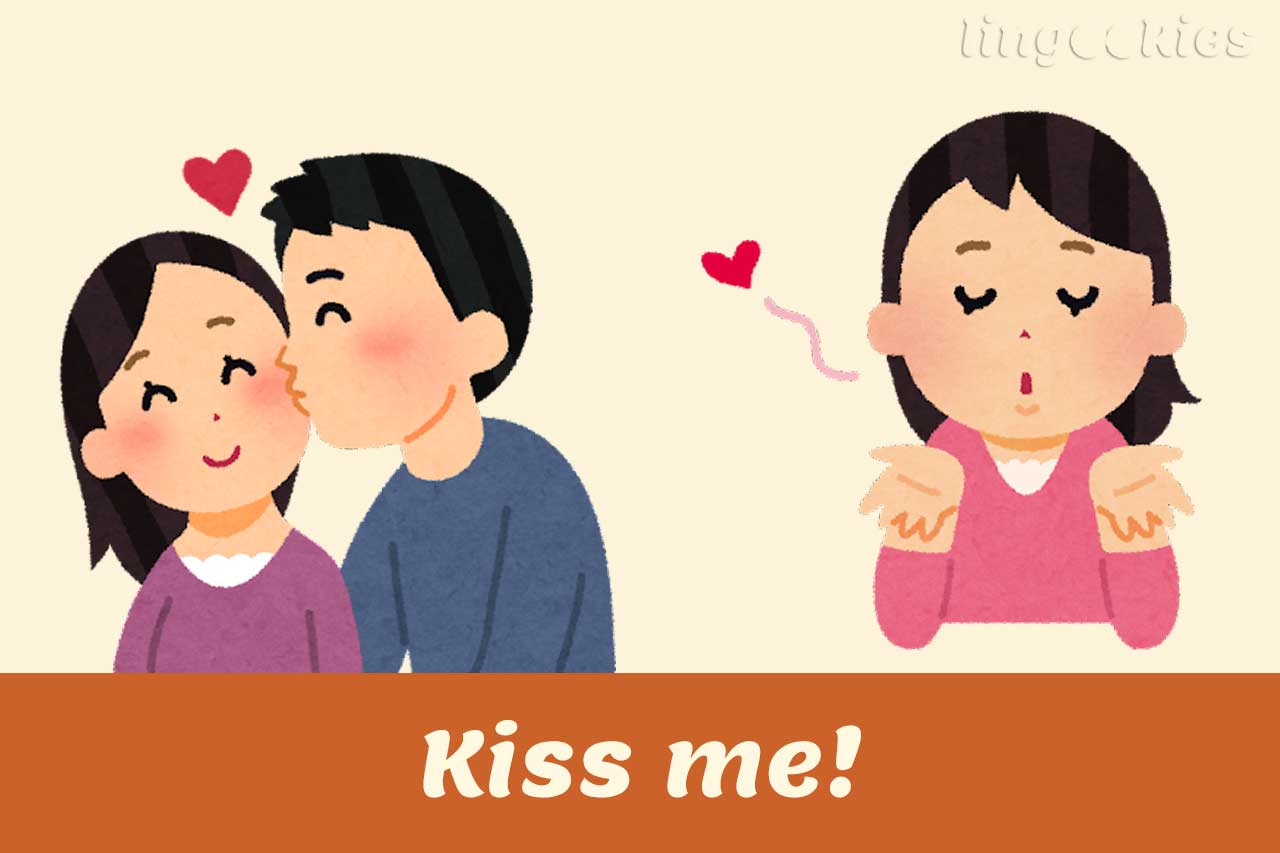How do you say it in Italian?
Baciami!
| Pronunciation | |
| Words you should know | Baciare (to kiss) + mi (to me) |
| When to use this | With 1 person you’re familiar with |
| When NOT to use this | With strangers and groups |
Examples
| Baciami, amore. | Kiss me, love. |
| Andrea, baciami. Mi sei mancato molto. | Andrea, kiss me. I have missed you so much. |

Are you wondering why the direct object pronoun is attached to the verb? Learn how direct object pronouns in Italian work here.
An alternative that’s more appropriate between relatives (such as a grandma and her niece) is dammi un bacio, literally give me a kiss, from the verb dare, to give.
| Dammi un bacio! | Give me a kiss! (singular, informal) |
Baciatemi!
| Pronunciation | |
| When to use this | With a group of people |
| When NOT to use this | With strangers (doh!) and 1 person at a time |
In Italian, unlike English, there are two kinds of “you”. There is a singular “you” and then there is a plural “you”. If you’re speaking to a group, you’ll need to conjugate any verb or pronoun accordingly.

However, this form is not commonly used. If you want your nephews, nieces or children to kiss you on your cheek, it’s more common to say…
| Datemi un bacio! | Give me a kiss! (plural) |
Mi baci!
| Pronunciation | |
| When to use this | With a stranger |
| When NOT to use this | With people you know well |
When speaking formally, Italians address each other with the subject “she”, lei. Use Lei in the written form if you want to be very polite.
As you can probably guess, this is not really appropriate to use. You also shouldn’t use its polite variant, mi dia un bacio, give me a kiss, unless you want to sound very rude.
| Mi dia un bacio! | Give me a kiss! (polite) |
More free Italian resources
You might want to keep learning Italian online with these free Italian resources:
❤️ If you liked this lesson on how to say kiss me in Italian, share it with your friends!


